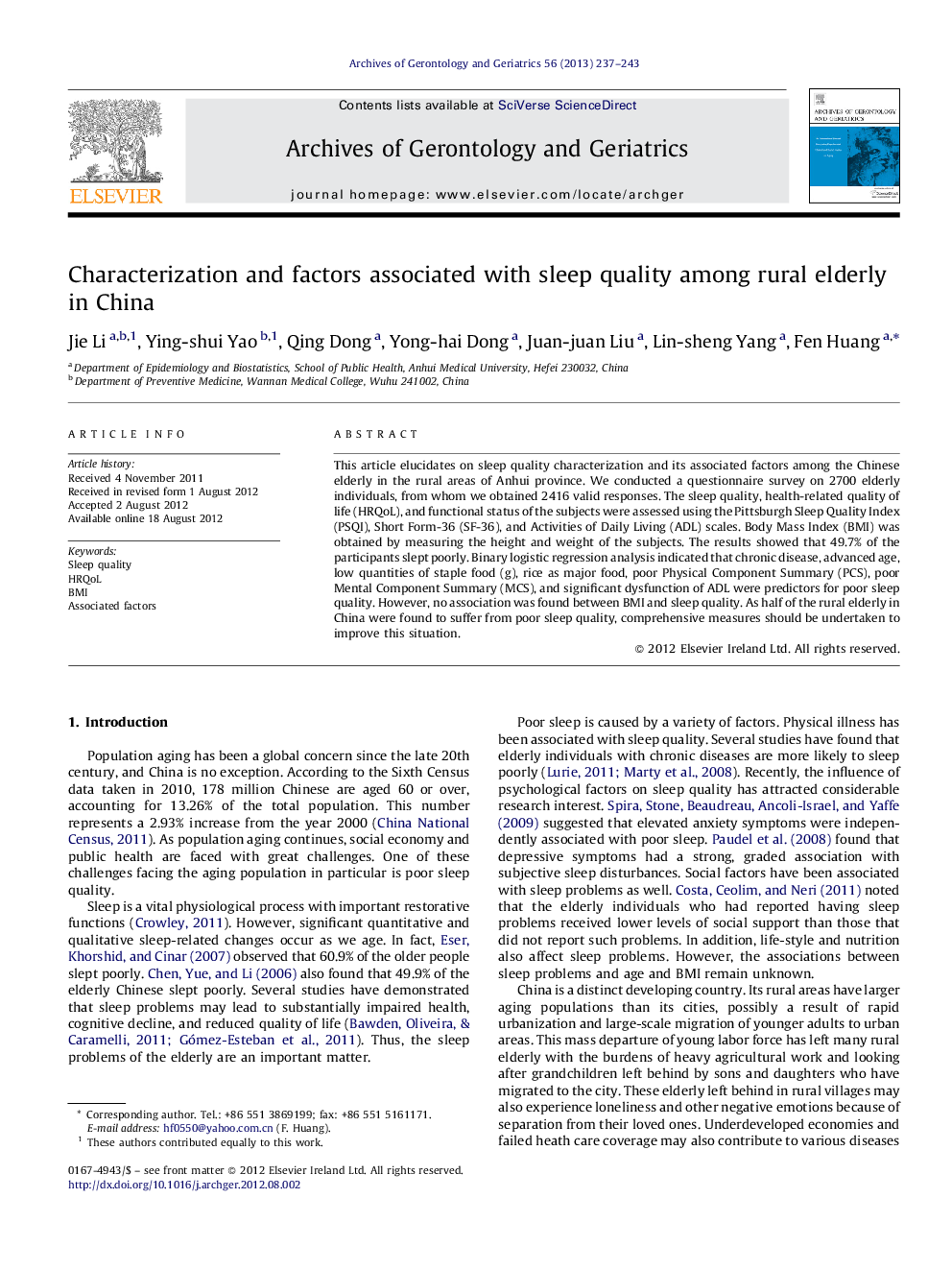| Article ID | Journal | Published Year | Pages | File Type |
|---|---|---|---|---|
| 8258153 | Archives of Gerontology and Geriatrics | 2013 | 7 Pages |
Abstract
This article elucidates on sleep quality characterization and its associated factors among the Chinese elderly in the rural areas of Anhui province. We conducted a questionnaire survey on 2700 elderly individuals, from whom we obtained 2416 valid responses. The sleep quality, health-related quality of life (HRQoL), and functional status of the subjects were assessed using the Pittsburgh Sleep Quality Index (PSQI), Short Form-36 (SF-36), and Activities of Daily Living (ADL) scales. Body Mass Index (BMI) was obtained by measuring the height and weight of the subjects. The results showed that 49.7% of the participants slept poorly. Binary logistic regression analysis indicated that chronic disease, advanced age, low quantities of staple food (g), rice as major food, poor Physical Component Summary (PCS), poor Mental Component Summary (MCS), and significant dysfunction of ADL were predictors for poor sleep quality. However, no association was found between BMI and sleep quality. As half of the rural elderly in China were found to suffer from poor sleep quality, comprehensive measures should be undertaken to improve this situation.
Related Topics
Life Sciences
Biochemistry, Genetics and Molecular Biology
Ageing
Authors
Jie Li, Ying-shui Yao, Qing Dong, Yong-hai Dong, Juan-juan Liu, Lin-sheng Yang, Fen Huang,
